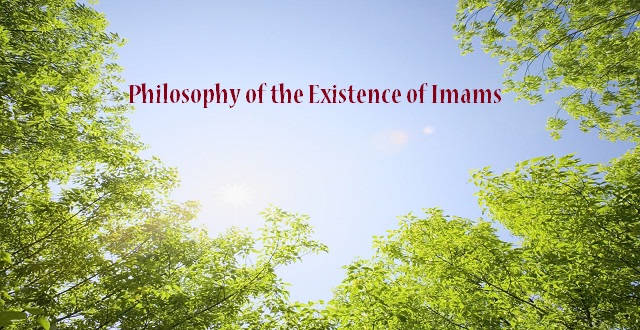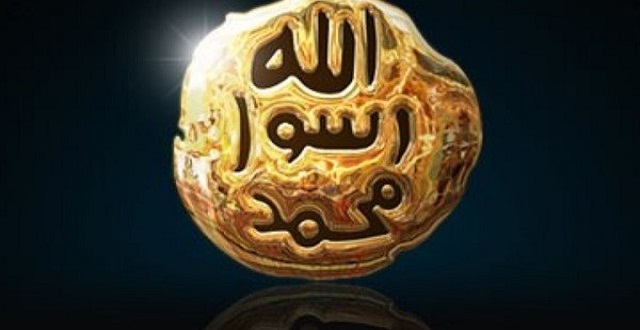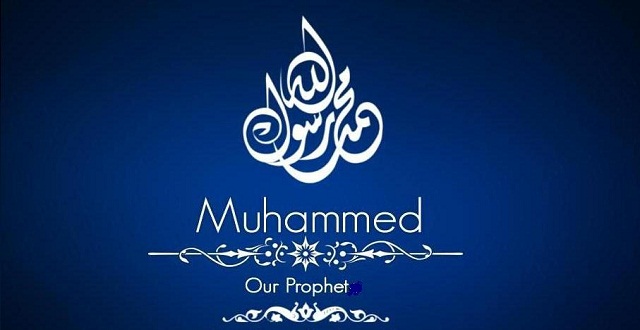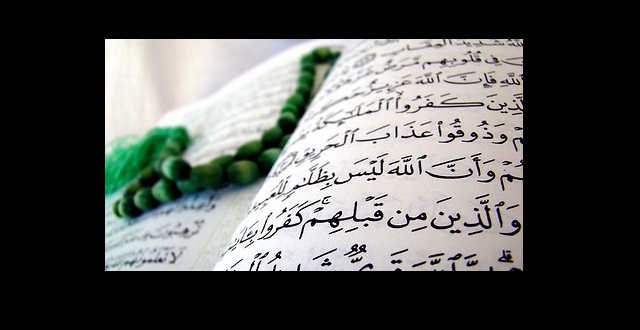Imamate in the Traditions of the Holy Prophet
When we study the Traditions of Islam written in books, in particular the books of the Sunnis, a researcher encounters an abundance of Traditions of the Holy Prophet which prove the station of the imamate and vicegerency of ‘Ali, peace be upon him.
Researchers are surprised that with ail of these Traditions, any doubt should remain on the issue, much less that a person would want to chose a way that is different from the way of the Ahlul Bayt.
These Traditions, which reach into the hundreds (like the Tradition of Ghadir), and tens of other Traditions recorded in tens of famous books are so clear that if one were to follow them, even if one were to put aside following the dictates of a religious authority, the issue would still be so clear that no further proof would be necessary.
As an example, several famous Traditions in this area will be presented and or those who wish to study further in this area, we will mention the sources in which they may do so. (See al-Maraj’at and al-Ghadir).
1. The Tradition of Ghadir
Many of the historians of Islam have written that the Holy Prophet of Islam, towards the end of his life, after the ritual pilgrimage (hajj), spoke to many of the old and new Muslims who, in faith, had come from all over the Hijaz region to perform this ritual, at the time of the return from Mecca, in the area of Jufah, between Mecca and Medina, when they reached a wilderness known as Ghadir Khum, which was a crossroads which separated the people of the Hijaz.
Before the Muslims separated from each other to each go to their particular area of the Hijaz, the Prophet ordered his followers to stop. Those who were ahead were invited to return and those who had remained behind, caught up with them.
The weather was very hot and burning. There was no roof to shelter them. The Prophet informed them that they should all gather to listen to a new command from God which would be expressed during a sermon.
A pulpit was prepared by saddles placed upon a camel and the Holy Prophet mounted the pulpit and addressed the gathering.
“I will soon accept God’s invitation (to death) and I will leave you. I am responsible and you are responsible.
How will you bear witness to me?”
The people said, “We swear that you have carried out your mission and that you have done your best to guide us. May God bless you.”
The Prophet said, “Do you swear to the worship of the One God, to my Divine mission and to the truth of the day of the Resurrection when the dead shall be raised on that day?” Everyone answered, “Yes. We so swear.” He said, “May God be my witness…”
Then he said, “O people! Do you hear me?” They said, “Yea,” and following that, every one was silent and other than the sound of the breeze, nothing could be heard. The Holy Prophet then said, “Now say what you will do with these two valuable things which I leave behind.”
A person from among the multitude cried out, “What two valuable things?”
The Holy Prophet said, “First, the Book of the Holy Qur’an and do not remove yourselves from it so that you be led astray. The second valuable souvenir which I leave among you is my family. God the Almighty has informed me that these two will never separate from each other; they will join me in heaven and you will be destroyed if you part from these two. If you remain behind, again, you will be destroyed.”
The Holy Prophet looked around him. He was looking for someone. Then he saw ‘Ali. He bent down and took his hand and pulled him up so that the whiteness under the arms of both showed and all of the people saw him and recognized him.
Here the voice of the Holy Prophet became louder and clearer. He said, “What person from among all people is the most worthy of the believers?”
They answered, “God and the Prophet know best.”
Then he said, “God is my Master and Leader and I am the master and leader of the believers and I am most worthy among them.” Then he added, “Whoever I am the master and leader of, ‘Ali is his master and leader.” He repeated this three times and according to some Traditions, four times. Then he raised his head to the heavens and said, “God loves his friends, and hates those who hate him.
Befriend his friends and leave those who do not befriend him. Know that his is in the right and that he follows the right.”
Then he said, “All of those present, tell all of those who are absent.” The people were still gathered when Gabriel, the trustee of God’s message appeared and revealed verse 58 of surah 5 to the Holy Prophet.
Then the Holy Prophet said, “I praise God. I praise God because he has completed his message and his blessings have ended for me and His satisfaction with my message and the wilayat of ‘Ali has been announced after me.”
A great commotion appeared among the people and then they congratulated ‘Ali for the station he had been given. Abu Bakr, Umar, in the presence of the crowd said to ‘Ali, “Congratulations to you, O son of Abu Talib, you have become my leader and leader of all of the people, men and women who have faith.”
The above Tradition has been recorded in varying versions, some quite lengthy and some short, by many of the scholars of Islam in their books. This Tradition is greater than for one to deny or doubt that the Prophet said it. The scholar, Allamah Amini, in his famous book al-Ghadir mentions 110 people among the Companions and followers of the Prophet and 360 famous books on Islam in which it has been recorded and it has appeared in many of the books of the Sunni brothers on Traditions.
Even a large group of the scholars of Islam have written independently about this Tradition, including Allamah Amini who himself has written an excellent, independent book about the particularities of this Tradition. The names of 26 Islamic scholars have been included in a separate book.
A number of the people who have seen this Tradition as being something which cannot be denied, have tried to deny it in discussing the issue of imamate and caliphate and have said that the word mula’ (master) here means friend whereas if one notes the Tradition with care, the conditions under which it was recorded and the place where it was recorded, it is clear that the intention behind it was none other than imamate and wilayat in the sense of leadership of the people:
a. The verse on endeavoring to have Islam be better understood, which we have presented in the previous discussions, and before this, the situation in which it descended with the strong tone of recitation which appeared in it, well shows that the words are not about friendship and normal or average honesty because the was no place for such concern and all of this importance and emphasis was not necessary.
Also the verse of Ikmal ad-Din which was revealed after that shows that the above issue was extremely important like the issue of leadership and the successor to the Prophet which was relevant.
b. The method in which the Tradition was stated with all of the introductory remarks in the burning wilderness, with the extensive sermon, having the people swear to their beliefs and in a sensitive time and place are all proof of our claim.
c. The congratulations which the various groups of people gave to ‘Ali and the poems that poets recited that day and on the following days, all are proof of this expression that the words are about the selection of Hazrat ‘Ali to the position of imamate and wilayat and nothing else.
Think and Answer
1. Describe the story of Ghadir.
2. Narrate the Tradition of Ghadir with several proofs which have been mentioned about the Prophet in several famous books on Islam.
3. Why does the word mula in the Tradition of Ghadir refer to imamate and leadership and not friend?
4. What prayer did the Holy Prophet recite and what were the events of Ghadir concerning the rights of ‘Ali?
5. Where are Ghadir and Jahfah?










